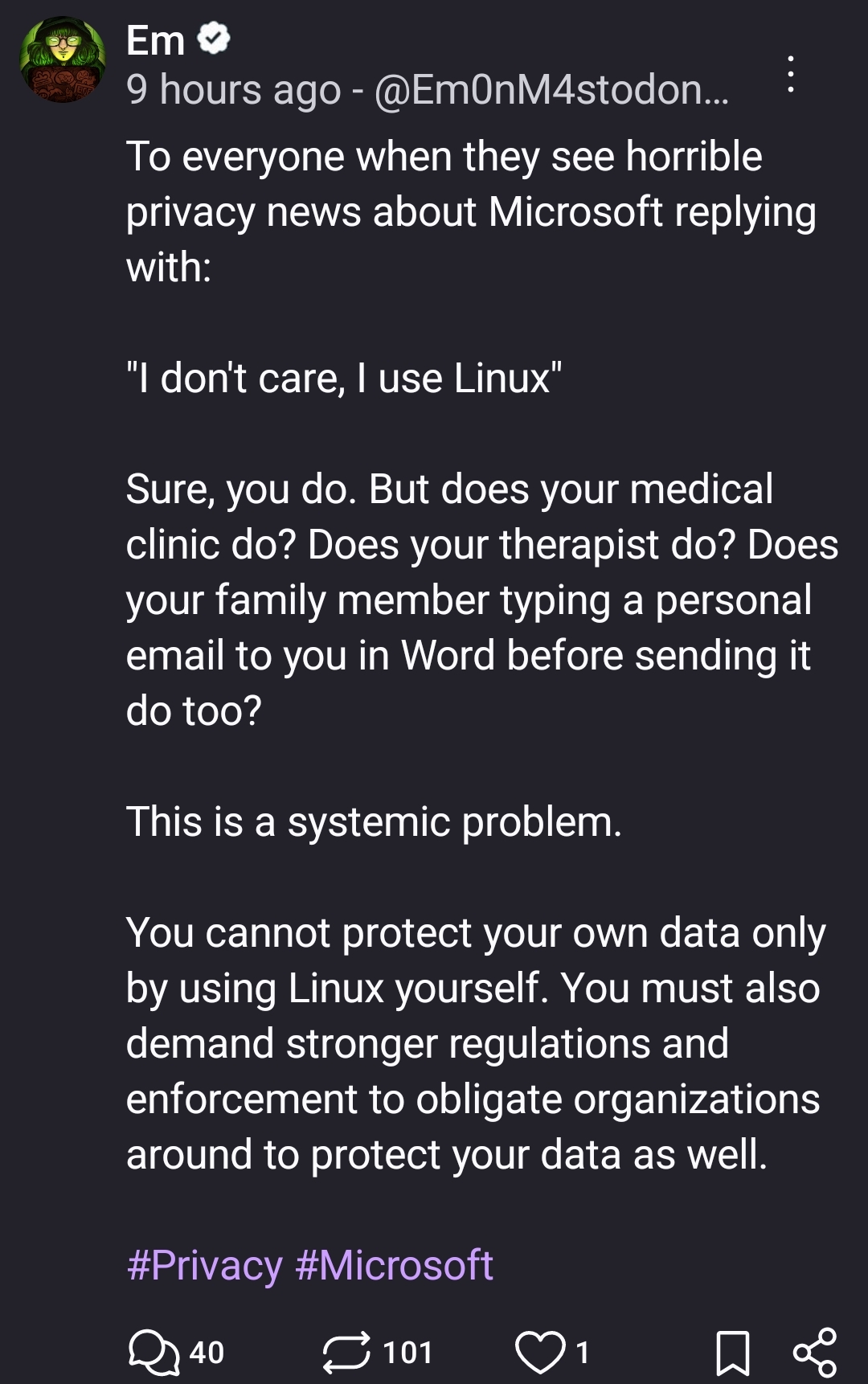this post was submitted on 25 Nov 2024
1866 points (98.6% liked)
Microblog Memes
6103 readers
2947 users here now
A place to share screenshots of Microblog posts, whether from Mastodon, tumblr, ~~Twitter~~ X, KBin, Threads or elsewhere.
Created as an evolution of White People Twitter and other tweet-capture subreddits.
Rules:
- Please put at least one word relevant to the post in the post title.
- Be nice.
- No advertising, brand promotion or guerilla marketing.
- Posters are encouraged to link to the toot or tweet etc in the description of posts.
Related communities:
founded 2 years ago
MODERATORS
you are viewing a single comment's thread
view the rest of the comments
view the rest of the comments

Here's a blog post about it, and here's a StackExchange exchange about it.
Thanks so much for these, I really enjoyed reading them. I'm not sure it's the same thing though to be honest. I feel like in this example, 'does' is where 'do' would go. Eg 'do your family members? Do your staff? Does your partner?' In your links I think the closest examples are those saying that they need to add a word after 'do' to clarify what kind of 'do' it is, eg something like 'Does your medical clinic do that?'
It's definitely the same thing. We can test this using other modals and auxiliaries in equivalent question constructions to show that we're dealing with analogous structures:
If making a question with "might", for example (with the pro-predicate base sentence "But your medical clinic might do"), we get "But might your medical clinic do?"
With "would", "But would your medical clinic do?"
So, with "dummy do"/do-support leading to the insertion of "do" for inversion purposes, along with the separate pro-predicate "do" lower in the clause, "Your medical clinic does" (or possibly "Your medical clinic does do") becomes in the same way "Does your medical clinic do?"
Sorry but I'm really not convinced, though I am really enjoying this conversation so thank you for your reply.
Reading the article you shared, my impression is that if the medical clinic question is the inverted form of the previous sentence "sure, you do", then the inverted part is the "do" moving to the front of the question in "does your medical clinic?"
Responding to your examples, I feel the exact same way. They read completely unnaturally to me. Do you actually hear people speak like that? I don't think I ever have. It really sticks out to me because I would expect the context for 'do' to follow on, eg "but would your medical clinic do better?" I agree that a sentence like "I don't, but your medical clinic might do" is acceptable like in the original link you provided, but when posed as a question, I would expect to drop one of the words in "might do" ie "but might your medical clinic?" or "but does your medical clinic?"
Looking forward to hearing your thoughts.